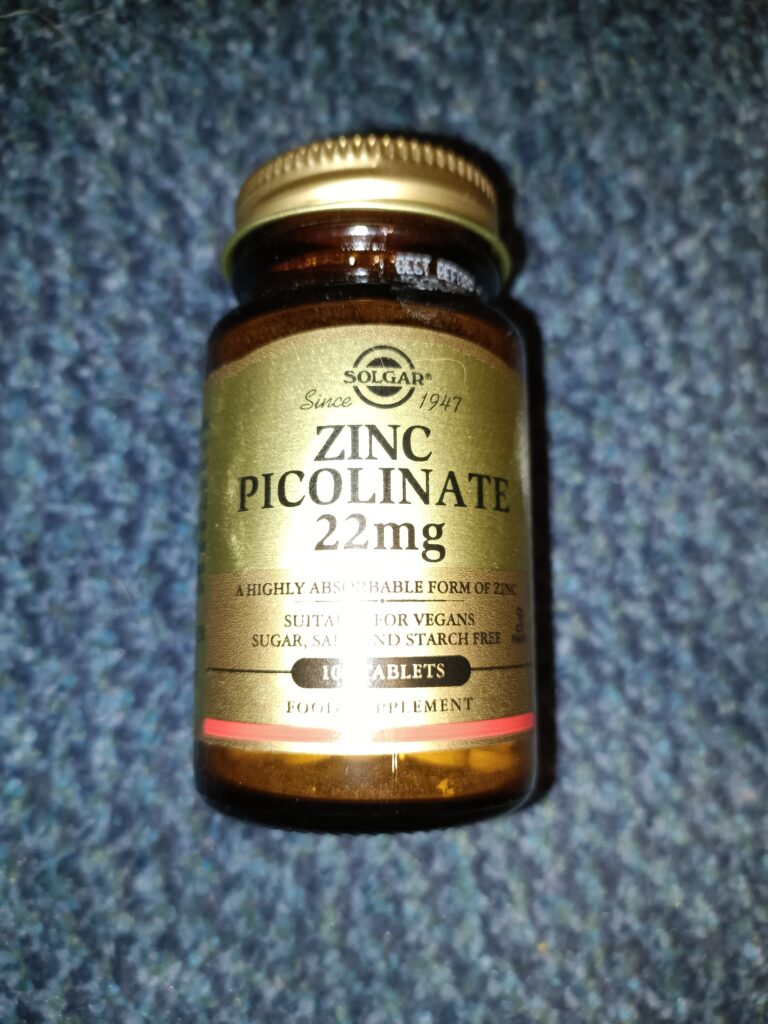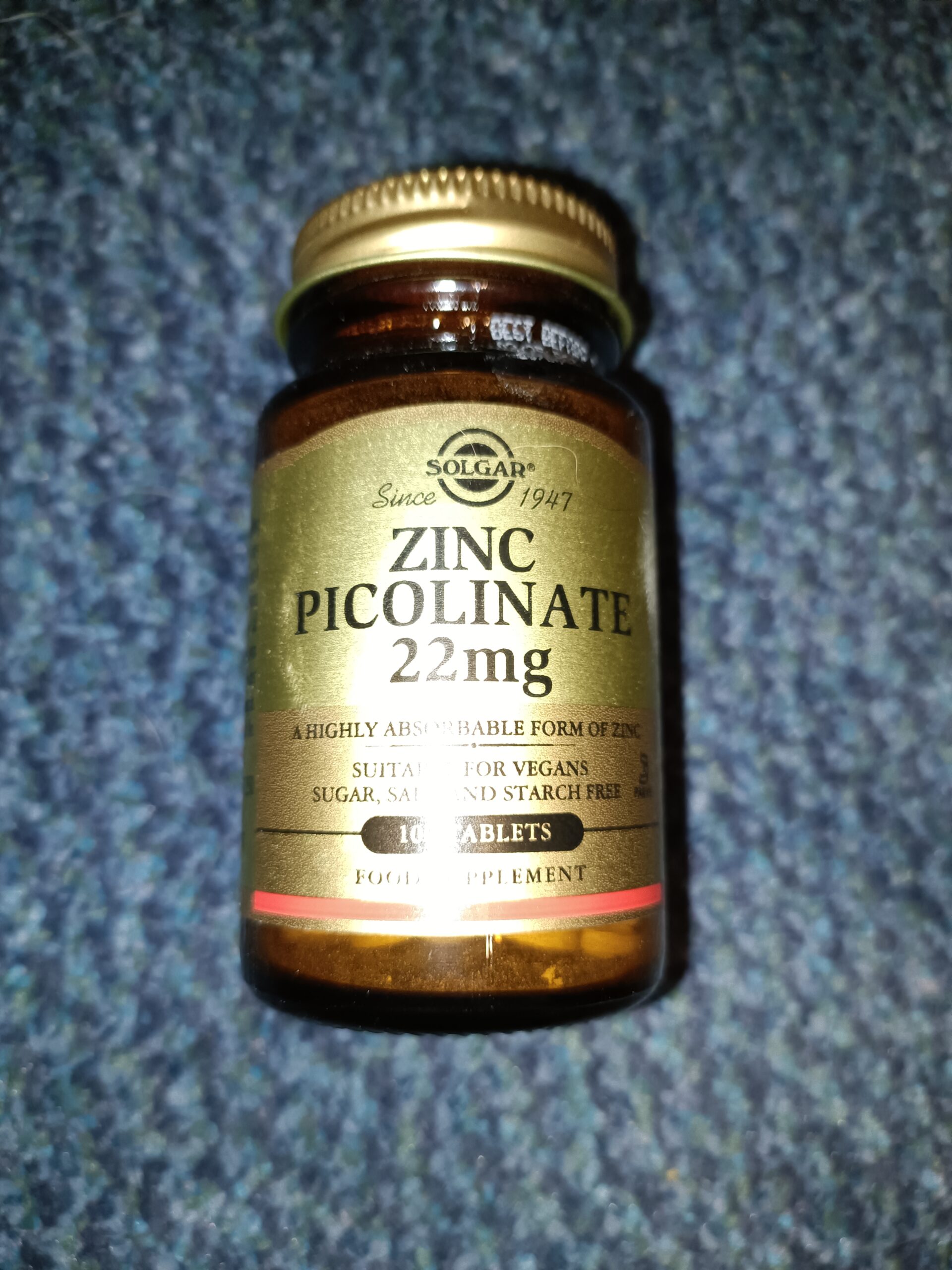Zinc is an essential mineral that plays a vital role in many physiological processes in the body, including immunity, metabolism, and wound healing. For runners, zinc can be beneficial for supporting overall health and performance. However, there are also some limitations to consider when using zinc supplementation.
Benefits of Zinc for Runners
Benefits of Zinc for Runners:
- Immune system support: Zinc is a critical mineral for immune function, and studies have shown that it can help reduce the risk of upper respiratory tract infections (URTI) in athletes. Runners are particularly susceptible to URTI due to the stress placed on the body during intense training, so supplementing with zinc may help reduce the risk of illness and keep runners healthy.
- Muscle recovery: Zinc is essential for protein synthesis, which is the process by which the body repairs and rebuilds muscle tissue after exercise. Runners who supplement with zinc may experience faster recovery times and less muscle soreness after long or intense training sessions.
- Energy metabolism: Zinc is involved in the metabolism of carbohydrates, fats, and proteins, which are the primary sources of energy for runners. Ensuring adequate zinc intake can help support energy production and endurance during exercise.
Limitations of Zinc for Runners
Limitations of Zinc for Runners:
- Dosage and absorption: The recommended daily allowance of zinc for adults is 11mg for men and 8mg for women. However, excessive zinc intake can lead to toxicity and interfere with the absorption of other essential minerals like iron and copper. Runners should be cautious when supplementing with zinc and consult with a healthcare professional to determine the appropriate dosage.
- Interference with medication: Zinc supplements can interfere with the absorption of certain medications, including antibiotics and diuretics. Runners who take medication should consult with a healthcare professional before supplementing with zinc to avoid potential interactions.
- Limited evidence: While some studies have shown the benefits of zinc for runners, the evidence is limited and inconclusive. More research is needed to determine the optimal dosage and effectiveness of zinc supplementation for runners.
Summary of Zinc
In conclusion, zinc can be a beneficial supplement for runners to support overall health, immunity, muscle recovery, and energy metabolism. However, runners should be cautious when supplementing with zinc, as excessive intake can lead to toxicity and potential interactions with medication. It is always recommended to consult with a healthcare professional before starting any new supplement regimen.

Suggested doses of Zinc
The recommended daily allowance (RDA) of zinc for adults is 11mg for men and 8mg for women. However, the optimal dosage of zinc supplementation for runners may vary depending on individual needs and health status.
According to a review of studies published in the Journal of the International Society of Sports Nutrition, zinc supplementation ranging from 15 to 30 mg per day may be effective in improving immune function and reducing the risk of upper respiratory tract infections in athletes, including runners. However, it is important to note that excessive zinc intake can lead to toxicity and interfere with the absorption of other essential minerals like iron and copper.
The tolerable upper intake level (UL) of zinc for adults is set at 40mg per day, which is the maximum amount that is considered safe to consume without the risk of adverse effects. It is generally recommended that runners do not exceed this amount of zinc intake from supplements.
It is also worth noting that zinc supplements can come in different forms, including zinc sulfate, zinc gluconate, and zinc citrate, among others. The bioavailability of these forms of zinc can vary, which can impact their effectiveness and absorption in the body. For example, zinc citrate has been shown to have higher bioavailability than zinc sulfate, making it a more effective form of supplementation.
Overall, the optimal dosage of zinc supplementation for runners should be determined on an individual basis, taking into consideration factors such as age, sex, health status, and dietary intake. Consulting with a healthcare professional before starting any new supplement regimen is recommended.
References for suggested doses
References:
- Prasad AS. Zinc in human health: effect of zinc on immune cells. Mol Med. 2008;14(5-6):353-357. doi:10.2119/2008-00033.Prasad
- Hemilä H. Zinc lozenges may shorten the duration of colds: a systematic review. Open Respir Med J. 2011;5:51-58. doi:10.2174/1874306401105010051
- Singh A, Failla ML, Deuster PA. Exercise-induced changes in immune function: effects of zinc supplementation. J Appl Physiol (1985). 1994;76(6):2298-2303. doi:10.1152/jappl.1994.76.6.2298
- Prasad AS. Zinc: mechanisms of host defense. J Nutr. 2007;137(5):1345-1349. doi:10.1093/jn/137.5.1345
- Institute of Medicine (US) Panel on Micronutrients. Dietary Reference Intakes for Vitamin A, Vitamin K, Arsenic, Boron, Chromium, Copper, Iodine, Iron, Manganese, Molybdenum, Nickel, Silicon, Vanadium, and Zinc. National Academies Press (US); 2001.
Buying Zinc Supplements
Scientific Study References
Here are some references to studies regarding the effectiveness of zinc:
- Singh A, Failla ML, Deuster PA. Exercise-induced changes in immune function: effects of zinc supplementation. J Appl Physiol (1985). 1994 Jun;76(6):2298-303. doi: 10.1152/jappl.1994.76.6.2298. PMID: 7928867.
- Hemilä H. Zinc lozenges may shorten the duration of colds: a systematic review. Open Respir Med J. 2011;5:51-8. doi: 10.2174/1874306401105010051. Epub 2011 May 20. PMID: 21760805; PMCID: PMC3136969.
- Prasad AS, Beck FW, Bao B, Fitzgerald JT, Snell DC, Steinberg JD, Cardozo LJ. Zinc supplementation decreases incidence of infections in the elderly: effect of zinc on generation of cytokines and oxidative stress. Am J Clin Nutr. 2007 Mar;85(3):837-44. doi: 10.1093/ajcn/85.3.837. PMID: 17344507.
- Wessels I, Maywald M, Rink L. Zinc as a Gatekeeper of Immune Function. Nutrients. 2017 Nov 25;9(12):1286. doi: 10.3390/nu9121286. PMID: 29186856; PMCID: PMC5748737.
- Prasad AS. Zinc: mechanisms of host defense. J Nutr. 2007 May;137(5):1345-9. doi: 10.1093/jn/137.5.1345. PMID: 17449505.
These studies suggest that zinc supplementation can be effective in supporting immune function, reducing the risk of infections, and improving recovery time in athletes. However, more research is needed to determine the optimal dosage and long-term effects of zinc supplementation.
Consult Your Healthcare Professional
It is important for runners to consult with a healthcare professional before starting to use Zinc or any other supplement.
